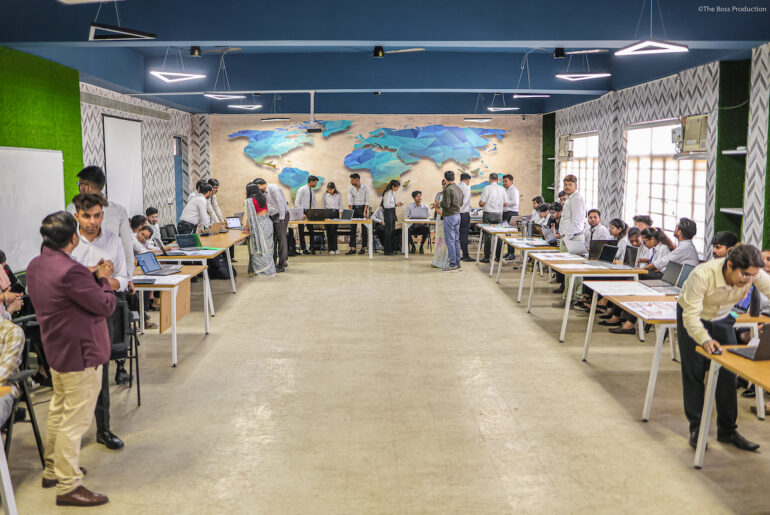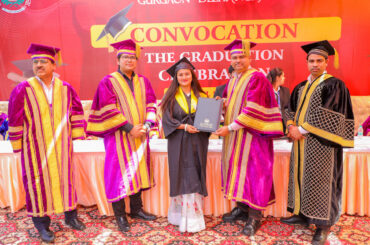Distance MBA Colleges
Distance MBA colleges offer flexible and convenient options for working professionals and students who cannot attend traditional on-cam pus programs.
These Indian universities provide comprehensive MBA curricula through online platforms in the distance mode, enabling students to balance their studies with personal and professional commitments.
The programs are designed to deliver the same quality of MBA education as on-campus courses, with interactive virtual classrooms, digital resources, and opportunities for networking.
Students benefit from studying at their own pace and from the comfort of their homes, making MBA distance education more accessible.
Distance MBA colleges often include periodic campus visits for workshops and exams, ensuring a well-rounded learning experience through their centers for distance learning.
Some of the most opted courses in India and St. Andrews college or different Engineering college or Management colleges are as follows:-
- Btech
- Btech CSE
- Btech ETCE
- MTech
- BCA
- BBA
- MBA
- MCA
- DPharma – St. Andrews College of Pharmacy
- BPharma – St. Andrews College of Pharmacy
- BArch – St. Andrews College of Architecture
Top Distance MBA Colleges in India

Here are the top distance MBA institutes in India, known for their quality education and flexible learning options:
1. Pondicherry University
A distance learning institute offers a distance MBA degree with a strong emphasis on practical knowledge and skill development.
2.Annamalai University
Offers a distance MBA degree program that is well-recognized for its comprehensive curriculum and affordability.
3. Sri Venkateswara University
Sri Venkateswara University distance learning is located in the Amroha District of UP, offering MBA programs in various specializations.
The university has been recognized by the University Grants Commission and Distance Education Bureau.
4. St. Andrews Institute of Technology and Management (SAITM), Gurgaon

SAITM is one of the renowned management universities in India, offering affordable and updated programs, including courses from their distance MBA colleges.
The institute does not offer a distance MBA, but offers other management programs.
5. Jaipur National University
Jaipur National University distance learning is a self-funded private university in Rajasthan, offering Distance MBA in various specializations.
The university has been recognized by the UGC, DEB, and NAAC.
6. IGNOU
IGNOU, one of the world’s renowned distance universities in India, offers the IGNOU MBA program along with other distance management courses.
The university has been recognized by the University Grants Commission, Distance Education Bureau, and AICTE.
7. JECRC University
JECRC distance is a private distance learning university in Jaipur, Rajasthan, offering Distance MBA in various specializations.
The university has been recognized by the UGC-DEB and NAAC.
8. Jagannath University
Jagannath University distance learning is a private university in Rajasthan, offering Distance MBA in various specializations.
The university has been recognized by the UGC, DEB, and NAAC.
Overview of Top Distance MBA Colleges in India

Here’s an overview of prominent institutions in India offering MBA programs in distance education mode, catering to the needs of working professionals seeking flexible learning options:
Indira Gandhi National Open University (IGNOU)
- Courses Offered: MBA, PG Diploma in Management (various specializations)
- Fees Structure: ₹37,800 for the entire MBA program
- Admission Process: Bachelor’s degree with 50% marks; admission through OPENMAT entrance test
ICFAI University
- Courses Offered: MBA with various specializations, Executive MBA
- Fees Structure: ₹65,000 – ₹1,00,000
- Admission Process: Bachelor’s degree with relevant work experience for Executive MBA; direct admission based on academic qualifications
St. Andrews Institute of Technology and Management (SAITM), Gurgaon

- Courses Offered: MBA (Marketing, Finance, Human Resources, IT, Business Analytics)
- Fees Structure: ₹2.6 Lakhs
- Admission Process: Bachelor’s degree; admission based on academic qualifications and Personal Interview
Narsee Monjee Institute of Management Studies (NMIMS Global Access)
- Courses Offered: MBA (WX), PG Diploma in Business Management
- Fees Structure: ₹1,20,000 – ₹1,50,000
- Admission Process: Bachelor’s degree; admission based on academic qualifications and work experience
Annamalai University
- Courses Offered: MBA with specializations, PG Diploma in Management
- Fees Structure: ₹49,000 – ₹60,000
- Admission Process: Bachelor’s degree; direct admission based on academic qualifications
Lovely Professional University (LPU)
- Courses Offered: MBA, Executive MBA
- Fees Structure: ₹80,000 – ₹1,00,000
- Admission Process: Bachelor’s degree; admission based on academic qualifications and work experience
Karnataka State Open University (KSOU)
- Courses Offered: MBA with various specializations
- Fees Structure: ₹30,000 – ₹35,000
- Admission Process: Bachelor’s degree; direct admission based on academic qualifications
Pondicherry University
- Courses Offered: MBA with various specializations
- Fees Structure: ₹45,500 – ₹75,000
- Admission Process: Bachelor’s degree; direct admission based on academic qualifications
Eligibility Criteria for Distance MBA Program
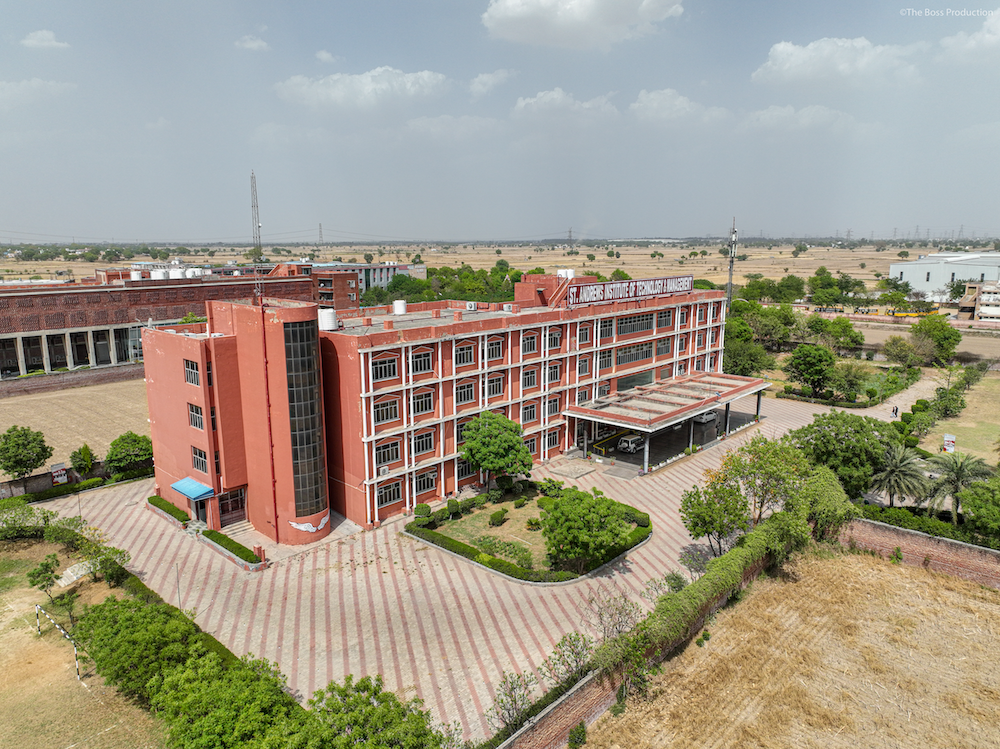
The eligibility criteria for a distance learning MBA program can vary slightly between institutions, but generally, the following requirements are common:
Educational Qualifications:
A bachelor’s degree in any discipline from a recognized university. Most institutions require a minimum of 50% marks in the undergraduate degree. Some may have a slightly lower requirement or consider applicants with lower percentages based on their professional experience.
Work Experience:
Although not mandatory for all programs, many distance MBA programs prefer candidates with 1 to 3 years of work experience. This requirement is more common in institutions aiming to attract working professionals.
Entrance Examinations:
Some distance MBA programs may require applicants to take entrance exams such as CAT, MAT, XAT, or the university’s own entrance test. However, this is not always a mandatory requirement and varies by institution.
English Proficiency:
Proficiency in English is essential as most programs are conducted in English. Some institutions may require proof of English proficiency through tests like IELTS or TOEFL, especially for international students.
Additional Requirements:
Certain institutions may have additional requirements such as a statement of purpose (SOP), letters of recommendation (LOR), or a personal interview to assess the candidate’s suitability for the program.
Admission Process Distance MBA Course

The admission process for a Distance MBA course, or a Post Graduation Diploma in Management, typically involves several steps. Here is a general outline of the process:
Research and Selection:
Research and shortlist the institutions offering Distance MBA programmes that meet your educational and career goals.
Application Form:
Fill out the application form available on the institution’s official website. Ensure you provide accurate personal, educational, and professional details.
Submission of Documents:
Upload or send copies of required documents, which generally include:
- Proof of educational qualifications (transcripts, degree certificates)
- Proof of work experience (if required)
- Entrance exam scores (if applicable)
- Identity proof (such as Aadhar card, passport)
- Recent passport-sized photographs
Entrance Examination:

If the institution requires an entrance exam, register for and take the exam. Some institutions may accept scores from national entrance exams like CAT, MAT, XAT, or their own specific tests.
Interview and Assessment:
Some institutions might incorporate a personal interview or group discussion into their selection process, which can be conducted on the university campus, over the phone, or through video conferencing.
Payment of Fees:
Upon receiving the admission offer, pay the required admission fees to confirm your seat. This may include the first semester/term fee and any other initial charges.
Enrollment and Orientation:
After payment confirmation, the institution will provide details regarding enrollment, study materials, online platform access, and orientation sessions. Attend the orientation (if applicable) to understand the course structure, schedule, and expectations.
Commencement of Classes:
Begin your classes as per the academic calendar provided by the institution. Engage in online lectures, complete assignments, and participate in discussions as required.
Fees Structure of Distance MBA Institutes
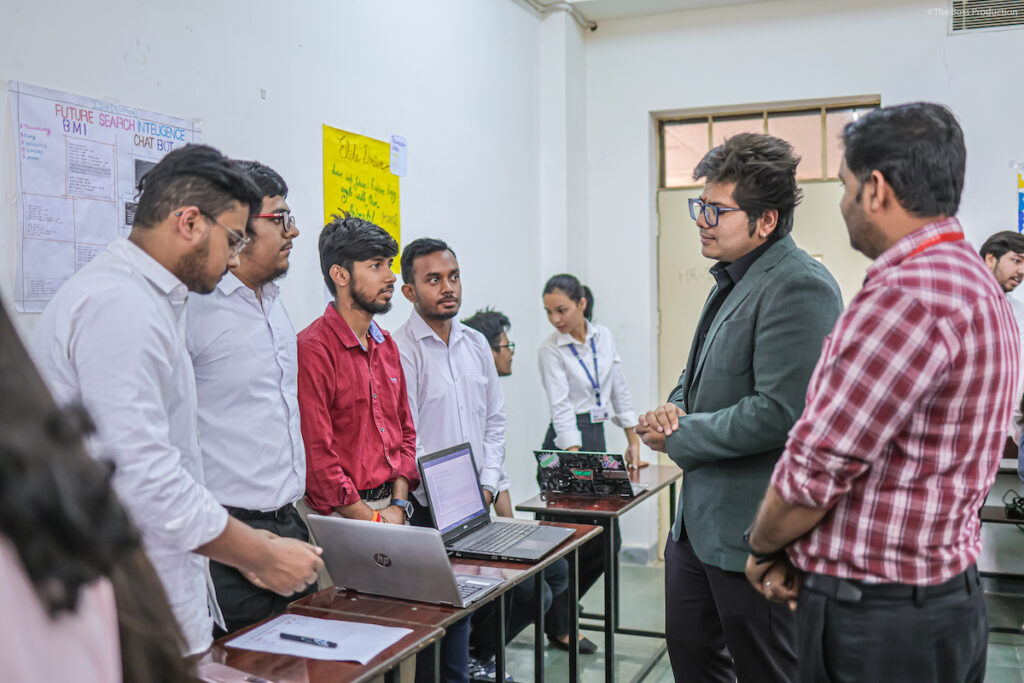
Here is an overview of the fees structure for some of the top Distance MBA institutes in India:
Indira Gandhi National Open University {IGNOU}
- Total Fees: ₹37,800
- Duration: 2.5 years (minimum)
ICFAI University:
- Total Fees: ₹65,000 – ₹1,00,000
- Duration: 2 years
Narsee Monjee Institute of Management Studies {NMIMS Global Access}
- Total Fees: ₹1,20,000 – ₹1,50,000
- Duration: 2 years
St. Andrews Institute of Technology and Management {SAITM}, Gurgaon
- Total Fees: ₹2.6 Lakhs
- Duration: 2 years
Annamalai University:
- Total Fees: ₹49,000 – ₹60,000
- Duration: 2 years
Lovely Professional University {LPU}
- Total Fees: ₹80,000 – ₹1,00,000
- Duration: 2 years
Karnataka State Open University {KSOU}
- Total Fees: ₹30,000 – ₹35,000
- Duration: 2 years
Pondicherry University:
- Total Fees: ₹45,500 – ₹75,000
- Duration: 2 years
Types of Distance MBA Courses
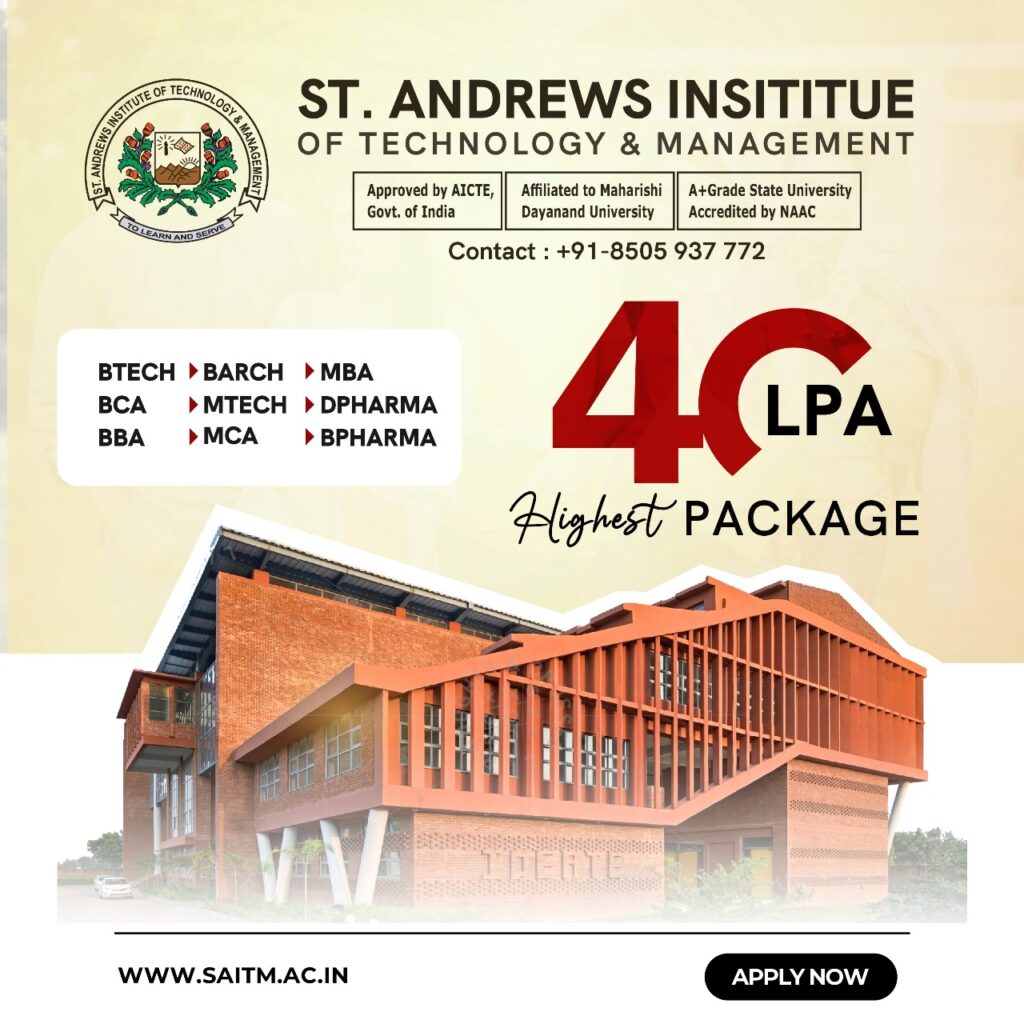
Distance MBA programs offer various formats and specializations to cater to the diverse needs of students in the distance learning mode.
Here are the main types of Distance MBA programs:
General MBA:
This program provides a broad overview of business management principles and practices. It covers various aspects of business, including finance, marketing, operations, human resources, and strategy, without focusing on a specific specialization.
Executive MBA (EMBA):
Designed for working professionals with significant managerial experience, the EMBA program focuses on advanced management skills and leadership development. It is usually more intensive and shorter in duration compared to a general MBA.
Specialized MBA:
These programs focus on a particular area of business, allowing students to gain in-depth knowledge and expertise in their chosen field. Common specializations include:
- Finance
- Marketing
- Human Resource Management
- Operations Management
- Information Technology
- International Business
- Supply Chain Management
- Entrepreneurship
Hybrid MBA:
A blend of online and on-campus learning, the hybrid MBA combines the flexibility of distance education with the benefits of face-to-face interaction. Students attend periodic on-campus sessions for workshops, networking, and practical experience while completing the rest of the coursework online.
Global MBA:
Aimed at students seeking an international perspective, the Global MBA program covers global business practices, cross-cultural management, and international markets. It often includes international residencies or exchange programs.
Industry-Specific MBA:
These programs cater to specific industries, such as healthcare, energy, hospitality, or retail. The curriculum is tailored to address the unique challenges and opportunities within the chosen industry.
Accelerated MBA:
Designed for students who wish to complete their MBA in a shorter time frame, the accelerated MBA program is more intensive and requires a higher level of commitment and time management.
MBA Specialisations in Distance MBA Colleges
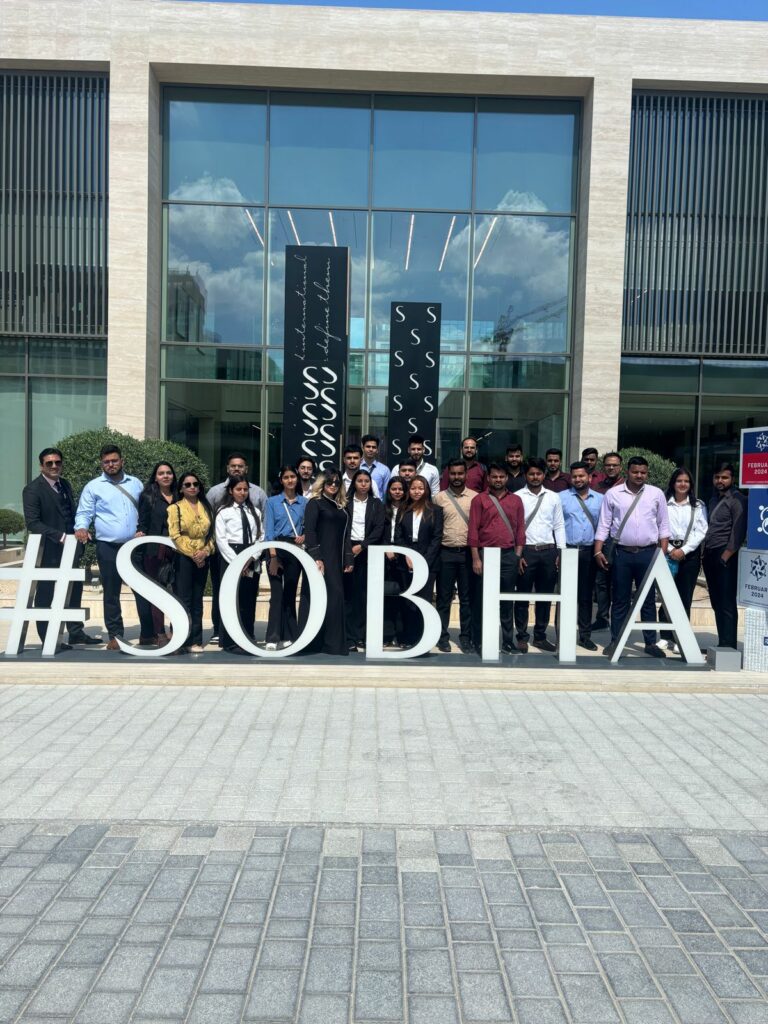
Distance MBA programs offer a variety of specializations to cater to the diverse interests and career goals of students.
Here are some common MBA specializations available in distance MBA colleges:
Finance:
Focuses on financial management, investment analysis, corporate finance, and financial markets. Ideal for careers in banking, investment, financial planning, and corporate finance.
Marketing:
The Marketing Management MBA covers topics such as consumer behavior, market research, digital marketing, brand management, and sales strategies. It is suitable for careers in marketing, advertising, sales, and product management.
Human Resource Management (HRM):
Emphasizes recruitment, training and development, performance management, labor relations, and organizational behavior. Prepares students for roles in HR departments and consultancy firms.
Operations Management:
Focuses on supply chain management, logistics, production planning, quality control, and project management. Ideal for careers in manufacturing, logistics, and supply chain management.
Information Technology (IT):
Covers topics like IT management, systems analysis, data management, cybersecurity, and technology innovation. Suitable for careers in IT management, consulting, and systems analysis.
International Business:
Emphasizes global trade, international marketing, cross-cultural management, and global supply chain management. Prepares students for careers in multinational companies and global trade organizations.
Entrepreneurship:
Focuses on business plan development, venture capital, startup management, and innovation. Ideal for aspiring entrepreneurs and those interested in starting their own businesses.
Healthcare Management:
The Hospital Management MBA covers healthcare systems, hospital management, healthcare policies, and medical ethics. It is suitable for careers in hospital administration, healthcare consultancy, and healthcare organizations.
Supply Chain Management:
Emphasizes procurement, logistics, inventory management, and distribution. Prepares students for roles in supply chain coordination, logistics management, and operations.
Project Management:
Focuses on project planning, risk management, project execution, and resource management. Ideal for careers in project management across various industries, including IT, construction, and engineering.
Retail Management:
Covers retail operations, merchandising, retail marketing, and consumer behavior. Suitable for careers in retail management, store operations, and e-commerce.
Business Analytics:
Emphasizes data analysis, statistical methods, predictive modeling, and business intelligence. Prepares students for roles in data analysis, business intelligence, and analytics consulting.
Hospitality Management:
Focuses on hotel management, tourism management, event planning, and customer service. Suitable for careers in the hospitality and tourism industry.
Energy Management:
Covers energy policy, renewable energy, energy efficiency, and energy economics. Ideal for careers in energy sector management, sustainability, and environmental consulting.
Rural Management:
Emphasizes rural development, agribusiness, rural marketing, and sustainable development. Prepares students for roles in NGOs, rural development agencies, and agribusiness companies.
Benefits of Distance MBA Programs

Distance MBA programs offer several benefits, making them an attractive option for many students and working professionals.
Here are some of the key advantages:
Flexibility:
Distance MBA programs allow students to study at their own pace and schedule, making it easier to balance education with work and personal commitments. This flexibility is particularly beneficial for working professionals who cannot commit to full-time on-campus programs.
Accessibility:
Students can access course materials and lectures from anywhere, eliminating the need to relocate or commute to a campus. This makes higher education more accessible to individuals living in remote or rural areas.
Cost-Effectiveness:
Distance MBA programs are often more affordable than traditional on-campus programs. Students can save on expenses related to transportation, accommodation, and other campus-related costs.
Career Advancement:
Earning an MBA through a distance program can enhance career prospects, opening up opportunities for promotions, higher salaries, and new job roles. It provides the necessary skills and knowledge to advance in one’s career without taking a break from work.
Wide Range of Specializations:
Distance MBA programs offer various specializations, allowing students to tailor their education to their career goals and interests. This ensures that they gain expertise in their chosen field.
Continued Employment:
Since distance MBA programs can be pursued alongside a job, students do not have to sacrifice their current employment or income. This continuity helps in applying learned concepts directly to their work, enhancing practical understanding and experience.
Self-Paced Learning:
Distance MBA programs often allow students to progress through the course at their own pace. This is ideal for those who may need more time to grasp complex concepts or who wish to accelerate their learning.
Global Networking Opportunities:
Many distance MBA programs have a diverse student body, providing opportunities to network with peers from different geographical locations and industries. This global perspective is valuable in today’s interconnected business world.
Use of Technology:
Online MBA programs leverage advanced online learning platforms and technologies, offering interactive and engaging learning experiences. Students become adept at using digital tools and resources, which are essential skills in the modern workplace.
Accreditation and Recognition:
Many distance MBA programs are offered by accredited and reputable institutions, ensuring that the degree holds value and recognition in the job market. Graduates can be confident in the quality and credibility of their education.
Skill Development:
Distance MBA programs emphasize critical thinking, problem-solving, leadership, and strategic planning skills. These are crucial for effective management and can be immediately applied in professional settings.
Customized Learning Experience:
Students have the freedom to choose courses and electives that align with their interests and career goals, allowing for a more personalized and relevant educational experience.
How to Choose the Right Distance MBA College

Choosing the right Distance MBA College is crucial for your career growth and personal development.
Here are some key factors to consider:
Accreditation and Recognition
Accreditation: Ensure the college is accredited by a recognized body, such as the UGC-DEB (University Grants Commission – Distance Education Bureau) or AICTE (All India Council for Technical Education).
Reputation: Research the college’s reputation in the industry and among alumni.
Course Curriculum
Specializations: Check if the college offers specializations that align with your career goals.
Curriculum Updates: Ensure the curriculum is up-to-date with the latest industry trends and technologies.
Faculty and Support
Experienced Faculty: Look for colleges with experienced and qualified faculty members.
Student Support Services: Evaluate the availability of academic support, counseling, and mentoring services.
Flexibility and Learning Resources
Learning Format: Consider the flexibility of the program in terms of class schedules, online/offline modes, and self-paced learning options.
Learning Resources: Ensure access to a comprehensive range of study materials, online libraries, and other learning resources.
Fees and Financial Aid
Cost: Compare the fee structure of different colleges and consider the total cost of the program, including tuition fees, examination fees, and any additional costs.
Financial Aid: Check for availability of scholarships, financial aid, or installment payment options.
Alumni Network and Placement Support
Alumni Network: A strong alumni network can provide valuable networking opportunities and career guidance.
Placement Assistance: Research the college’s track record in terms of placement support and partnerships with industry leaders.
Reviews and Testimonials
Student Reviews: Read reviews and testimonials from current students and alumni to get an idea of their experiences.
Third-Party Reviews: Look for reviews on independent education portals and forums.
Technological Infrastructure
Online Platform: Ensure the college uses a robust and user-friendly online learning platform.
Technical Support: Check for the availability of technical support to resolve any issues with the online learning system.
Personal Fit
Career Goals: Choose a college that aligns with your long-term career goals and aspirations.
Commitment Level: Ensure the program matches your availability and commitment level.
Top Distance MBA Universities in India
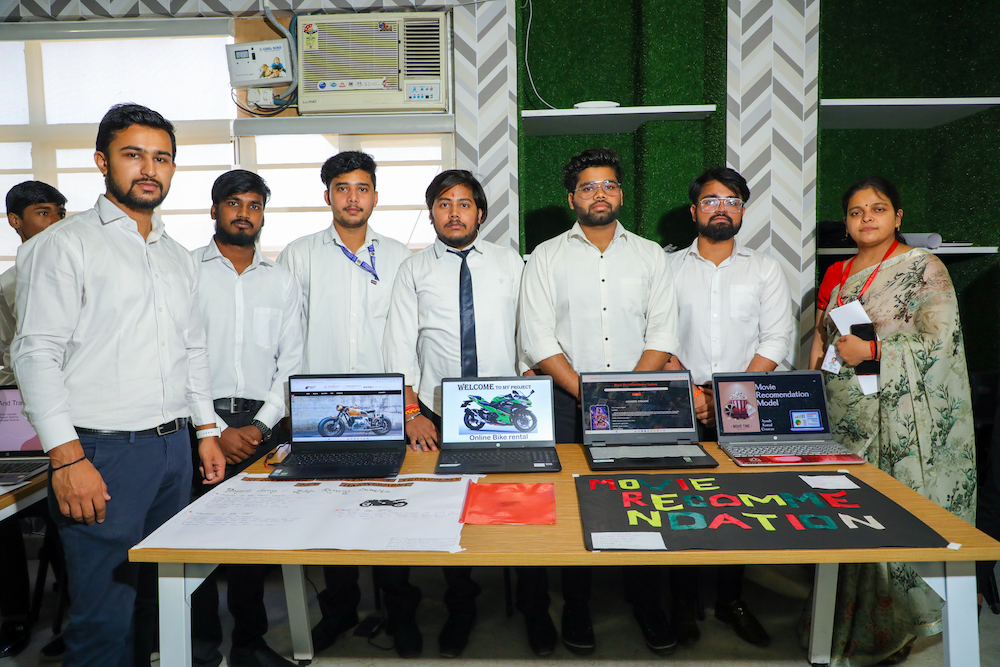
Here is an overview of some of the top Distance MBA universities in India:
Indira Gandhi National Open University [IGNOU]
Overview: IGNOU is the largest open university in India and one of the most reputed institutions for distance education.
Courses Offered: MBA, PG Diploma in Management (various specializations)
Fees Structure: ₹37,800 for the entire MBA program
Admission Process: Bachelor’s degree with 50% marks; admission through the OPENMAT entrance test
ICFAI University-
Overview: ICFAI is known for its high-quality management programs and robust distance education platform.
Courses Offered: MBA with various specializations, Executive MBA
Fees Structure: ₹65,000 – ₹1,00,000
Admission Process: Bachelor’s degree with relevant work experience for Executive MBA; direct admission based on academic qualifications
St. Andrews Institute of Technology and Management [SAITM], Gurgaon
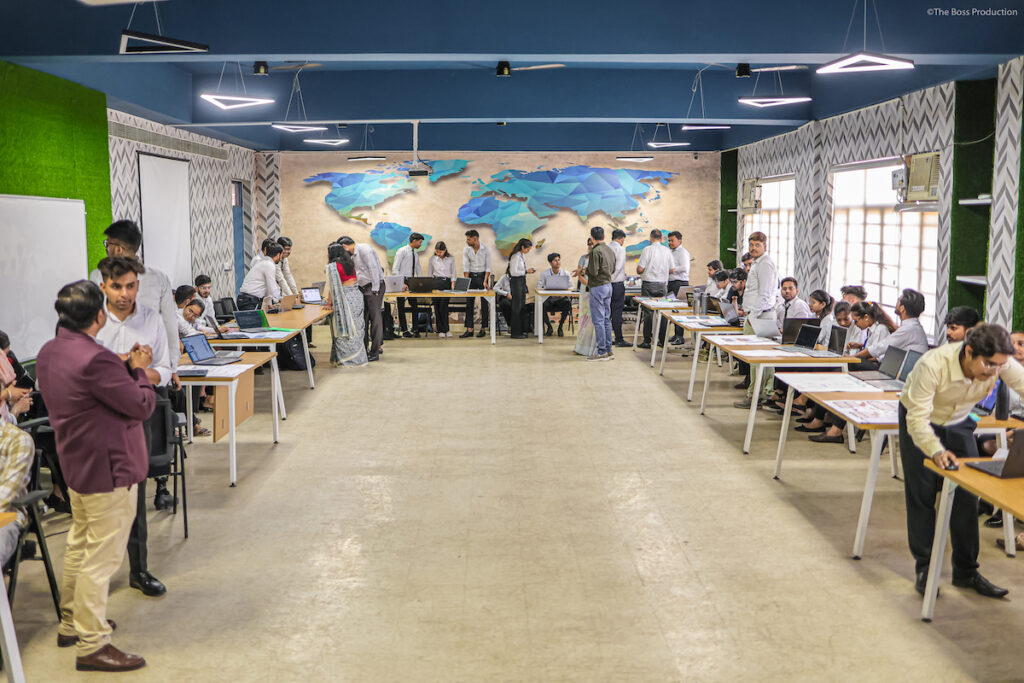
Overview: SAITM is a prestigious institution known for its commitment to academic excellence and holistic development.
Courses Offered: MBA with various specializations (Marketing, Finance, Human Resources, IT, Business Analytics)
Fees Structure: ₹2.6 lakhs
Admission Process: Admission on the basis of personal interview
Narsee Monjee Institute of Management Studies [NMIMS Global Access]
Overview: NMIMS Global Access is renowned for its strong curriculum and industry connections, making it a top choice for distance MBA.
Courses Offered: MBA (WX), PG Diploma in Business Management
Fees Structure: ₹1,20,000 – ₹1,50,000
Admission Process: Bachelor’s degree; admission based on academic qualifications and work experience
Annamalai University-
Overview: Annamalai University is one of the oldest and most prestigious distance education providers in India.
Courses Offered: MBA with specializations, PG Diploma in Management
Fees Structure: ₹49,000 – ₹60,000
Admission Process: Bachelor’s degree; direct admission based on academic qualifications
Lovely Professional University [LPU]
Overview: LPU offers flexible distance education programs with a focus on practical knowledge and skill development.
Courses Offered: MBA, Executive MBA
Fees Structure: ₹80,000 – ₹1,00,000
Admission Process: Bachelor’s degree; admission based on academic qualifications and work experience
Karnataka State Open University [KSOU]
Overview: KSOU is known for its affordable and accessible distance education programs, catering to a wide range of students.
Courses Offered: MBA with various specializations
Fees Structure: ₹30,000 – ₹35,000
Admission Process: Bachelor’s degree; direct admission based on academic qualifications
Pondicherry University-
Overview: Pondicherry University offers quality distance education programs with a focus on flexible learning schedules.
Courses Offered: MBA with various specializations
Fees Structure: ₹45,500 – ₹75,000
Admission Process: Bachelor’s degree; direct admission based on academic qualifications
Future Prospects After Completing a Distance Education MBA

Completing a Distance MBA from distance MBA colleges can open a variety of career opportunities and benefits. Here are some of the key future prospects:
1. Career Advancement
Many working professionals pursue a Distance MBA to enhance their skills and qualifications, which can lead to promotions and increased responsibilities within their current organizations.
2. Higher Salary
An MBA degree, even from a distance program, can significantly increase earning potential. Employers often recognize the commitment and expertise required to complete an MBA.
3. Career Change
A Distance MBA can provide the necessary skills and credentials to switch career fields. This is particularly beneficial for professionals looking to move into management, consulting, finance, or entrepreneurship.
4. Networking Opportunities
While networking opportunities in a Distance MBA might not be as robust as in a traditional program, many institutions offer virtual networking events, webinars, and alumni associations that can help in building professional connections.
5. Skill Enhancement
A Distance MBA provides a comprehensive understanding of business operations, including management, finance, marketing, and strategic planning. These skills are valuable in almost any industry.
6. Flexibility and Work-Life Balance
The flexibility of a Distance MBA allows professionals to continue working while studying, maintaining a balance between their education, career, and personal life.
7. Entrepreneurship
For those interested in starting their own business, a Distance MBA equips them with the necessary knowledge in business planning, financial management, marketing strategies, and leadership.
8. Global Opportunities
Many Distance MBA programs have international recognition, allowing graduates to explore job opportunities globally. The international curriculum and diverse student body also provide a global perspective on business practices.
9. Continued Education and Specializations
Graduates can pursue further specializations or certifications to enhance their expertise in specific areas such as data analytics, digital marketing, or financial planning.
10. Consulting Roles
The analytical and strategic skills gained from a Distance MBA are highly valued in consulting roles. Graduates can work as business consultants, advising organizations on improving efficiency and profitability.
11. Academic Opportunities
Those interested in academia can leverage their Distance MBA to pursue teaching positions at colleges or universities, or even further their studies with a doctoral program.
Distance MBA Colleges under Delhi university
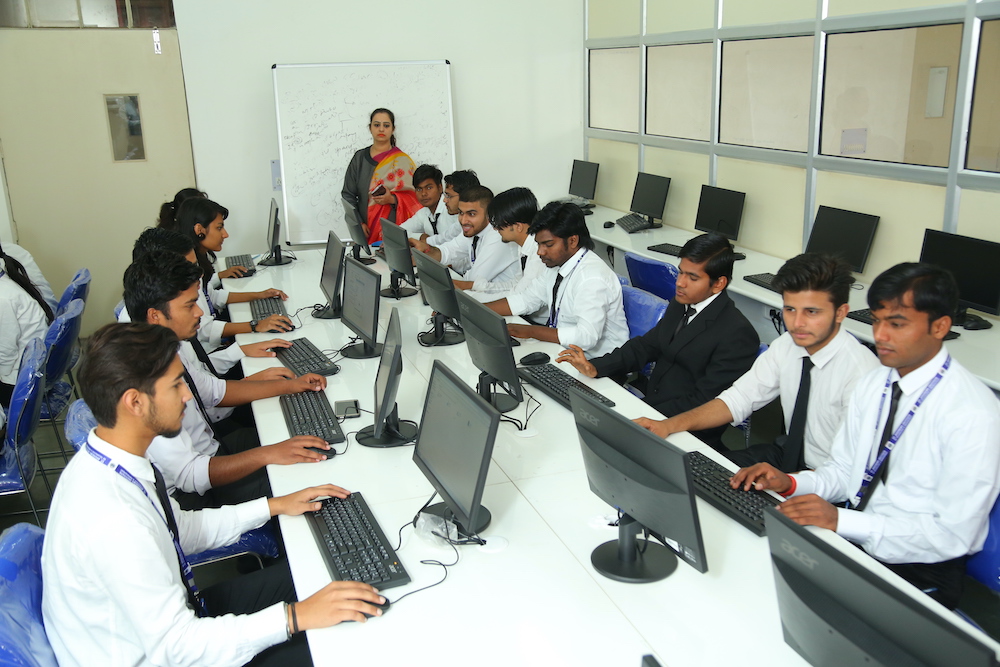
Delhi University offers distance MBA programs through its School of Open Learning (SOL) and other affiliated distance MBA colleges. Here are some details:
School of Open Learning (SOL), University of Delhi
- Specializations: General MBA and other related management courses.
- Key Features: Flexible learning schedules, access to study materials, periodic contact classes, and experienced faculty.
Faculty of Management Studies (FMS), University of Delhi
- Although primarily known for its full-time MBA program, FMS also offers various management development programs and executive education courses that can be beneficial for distance learners.
FAQs
What is Distance MBA?
A Distance MBA is a flexible Master of Business Administration program, often offered as a Post Graduate Diploma, designed for individuals who cannot attend traditional on-campus classes and is delivered primarily in an online mode.
It allows students to study at their own pace and location, balancing education with personal and professional commitments.
These programs, offered by government and private distance MBA colleges, provide the same curriculum and quality of education as on-campus MBAs, offering opportunities for career advancement and specialized knowledge in various business fields.
Is MBA from distance valid?
Yes, an MBA obtained through distance education is valid as long as the program is accredited by recognized authorities such as the University Grants Commission (UGC) and the Distance Education Bureau (DEB) in India.
What is the salary of distance MBA?
The salary of a graduate from an online MBA program can vary widely based on factors such as industry, job role, prior work experience, and the reputation of the institution. On average, online MBA program graduates in India can expect starting salaries ranging from ₹4 to ₹8 lakhs per annum. With experience, salaries can increase significantly, often reaching ₹10 to ₹20 lakhs or more per annum.
Is cat necessary for distance MBA?
No, CAT is not necessary for most distance MBA programs. Admissions to distance MBA programs at a distance education institute are generally based on eligibility criteria set by the institution, which usually include a bachelor’s degree and work experience. Some institutions might have their entrance exams or selection processes, but CAT is typically not a requirement.
What is the fee structure for distance MBA programs in India?
The fee structure for distance MBA programs in India can vary widely across different institutions. Generally, the total fees range from ₹30,000 to ₹1,50,000 for the entire course. Private business schools may charge higher fees depending on their reputation and the quality of resources they offer.
Do I need to appear for CAT or other entrance exams for distance MBA admission?
Most distance MBA programs do not rely on CAT scores for admission, opting instead for their own entrance exams or selection criteria. However, some prestigious institutions might take into account scores from national assessment tests like CAT, MAT, XAT, or other management entrance exams.
Can I pursue a distance MBA while working full-time?
Yes, one of the key benefits of a distance MBA from a global access school is the flexibility it provides, enabling students to seamlessly balance their studies with full-time employment and other personal responsibilities.

